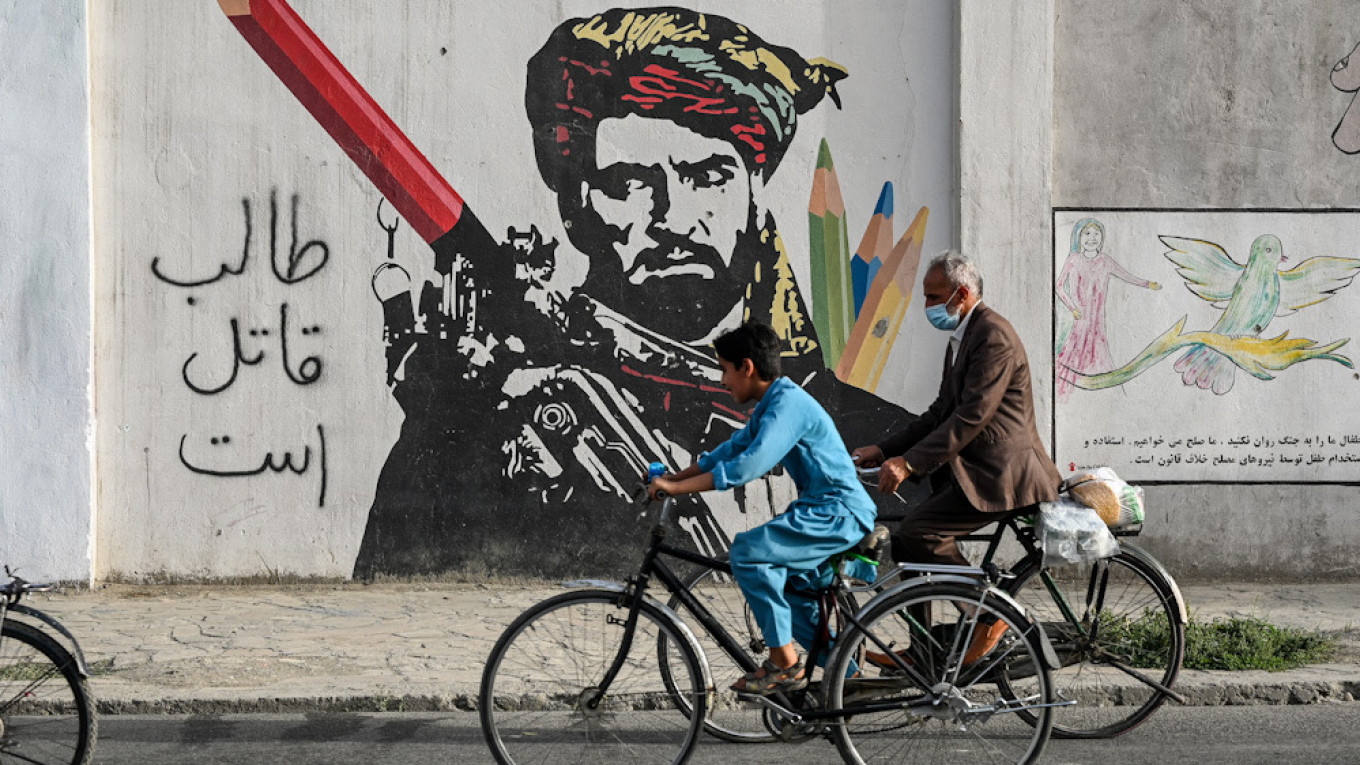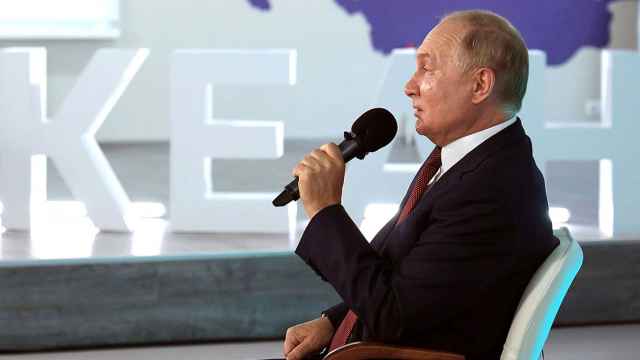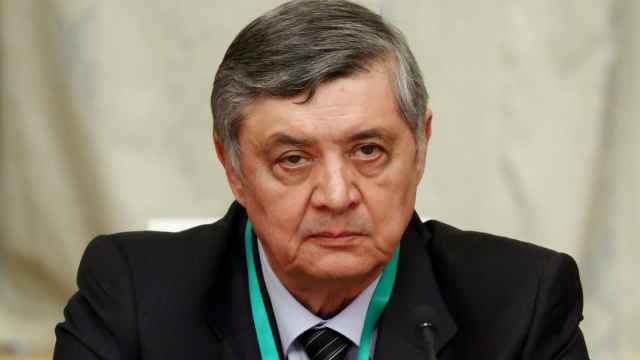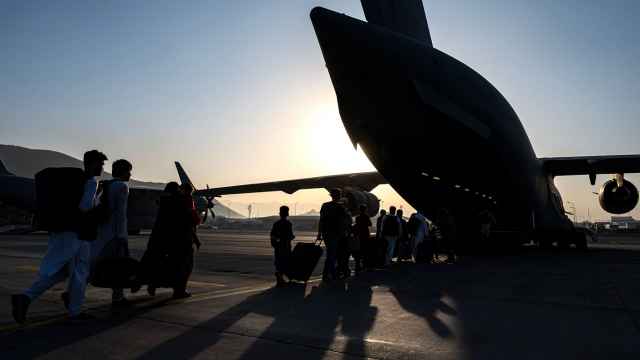There are two problems with U.S. overseas deployments outside the Western world. One is when Americans enter a region by force, disrupting the geopolitical status quo. The other is when they pull out, leaving behind a mess.
The U.S. intervention in Afghanistan in 2001 marked the beginning of Washington’s first-ever major military presence in a region deep inside the Eurasian continent. Such presence required support bases in neighboring Central Asian states, and logistical routes across Pakistan, the Caspian, the South Caucasus and the Black Sea, Eastern Europe, and even Russia. The U.S. military presence also led to an increase in U.S. political and ideological influence in the region, which raised concerns in Russia, China, and Iran.
Through its interventions in Afghanistan and Iraq, the United States became a Eurasian power, apparently the dominant one on the continent’s “chessboard.”
Twenty years later, the U.S. military withdrawal from Afghanistan leaves the country in a state of growing turmoil. Al-Qaeda, which organized the terrorist attacks on U.S. soil on September 11, 2001, was quickly defeated, but the Taliban who hosted them in Afghanistan are now emerging as the most influential force in the country, poised to topple the U.S.-backed administration in Kabul. Of much greater concern is the growing presence in Afghanistan of the Islamic State (IS) extremists, a diverse group that did not cease to exist after its routing in Iraq and Syria. With the United States and its allies departing from the country, Afghanistan becomes a problem for the neighboring states.
In a nutshell, the nature of the Afghan problem for Central Asia and Russia lies in Afghanistan becoming a source of instability for the region.
Whatever other impact the U.S. presence in the country has had over the past two decades, it certainly exercised a restraining influence on the radical forces there and shored up the authority of the constitutional government based in Kabul. With that presence gone, the civil war in Afghanistan will be fought with much more fervor, and the internationally recognized government may soon be toppled, creating massive refugee flows across the borders, while transborder extremist groups such as IS, now given a free rein, may potentially use Afghanistan as a base to undermine stability in Central Asia.
For Russia and the Central Asian countries, it is the refugee flows and the subversive transborder activity of IS-like organizations that constitute the main problem. In addition, Afghanistan under the U.S.-backed regime has become a leading source of narcotics transported across Central Asia to Russia, which is now a major market for them. This aspect of the Afghan situation will probably not change much with the U.S. departure. As for the internal political arrangements in Afghanistan itself, these are a matter for the Afghan people. The Taliban, essentially a Pashtun movement which is not strong enough to dominate the entire country single-handedly, but without which it cannot be governed, is not a problem for Russia and Central Asia as long as it does not reach beyond Afghanistan’s borders, does not provide shelter for transborder extremists, and does not engage in drug trafficking.
Tackling the Problem
Russia and the Central Asian countries have no resources, reason, or resolve to intervene by force in Afghanistan. That would be supreme folly and would end badly. One, the outcome of the civil war in Afghanistan is a matter for the Afghans to decide by force of arms and, hopefully, subsequent bargaining. Two, Russia has no direct interest in Afghanistan, and should be prepared to deal with any and all of the relevant players there, with the exception of extremists, who are the enemy. Three, while Uzbekistan and Tajikistan may feel an affinity with their ethnic brethren across the border in Afghanistan, they have no means of playing a military role in the intra-Afghan strife and should also stay away. This does not mean complete abstention from any use of force. Circumstances might demand strikes against extremists’ bases or other targets to prevent them from attacking Central Asian or Russian territory, but this should not lead to involvement in Afghanistan’s internal conflict.
To neutralize military dangers and terrorist threats that might originate from Afghanistan, the Central Asian countries and Russia have substantial resources in the region and beyond.
These include the armed forces of Uzbekistan and Tajikistan, two of Afghanistan’s neighbors; the Russian military bases in Tajikistan and Kyrgyzstan; Russia’s Central Military District headquartered in Yekaterinburg with a responsibility for the region south of the Russian border; and the armed forces and infrastructure of Kazakhstan.
Coordination among these various forces is secured through the mechanisms of the Collective Security Treaty Organization (CSTO), to which Kazakhstan, Kyrgyzstan, Russia, and Tajikistan belong; and at the bilateral level with Uzbekistan. A degree of coordination also needs to be established with Turkmenistan, which shares a long border with Afghanistan.
Of even more importance than military means are security assets that would be used to prevent the infiltration of extremists — including those masquerading as refugees — from Afghanistan to Central Asia and from there to Russia; check the spread of extremist ideology in the countries’ own territories; fight drug trafficking, which is used to finance terrorist groups; foil terrorist attacks; and so on.
The security arm of the CSTO is as important as its military component. The secretaries of the national security councils of the member states and their staffs need to be permanently in touch through some sort of a special network focused on Afghanistan-related issues.
The deteriorating security situation in Afghanistan and its likely impact on the region presents a major test for the CSTO, which has yet to earn its stripes as a security provider for the region. The organization needs to be re-energized through more joint military exercises and training, security coordination, and intelligence sharing. Of critical importance is controlling the borders of Tajikistan and Uzbekistan with Afghanistan, which are the first line of defense for both Central Asia and Russia.
Diplomatic Arsenal
Besides these military means deployed in their own territories, Central Asian countries and Russia need to use political instruments to prevent extremist incursions across Afghanistan’s northern border. Unlike in the late 1990s, Moscow and its partners cannot rely on a Northern Alliance of friendly Afghan Tajiks and Uzbeks, which provided a buffer zone along Afghanistan’s border with the former Soviet states. Now, these political instruments are essentially limited to contacts with the relevant actors in and around Afghanistan. The current government in Kabul and its competing leaders; the Taliban and its different constituent factions; ethno-political leaders of various Afghan communities; tribal chiefs; and the Afghan diaspora abroad could all be useful partners in making sure that the extremists within Afghanistan remain under pressure and thus unable to launch attacks outside the country.
The current Afghan government is recognized by Moscow and Central Asian capitals, which have cooperation agreements with it, including in the field of military security.
However, Russia has no reason to try to take the place being left vacant by the United States and become Kabul’s prime outside backer — especially since President Ashraf Ghani and his cabinet have never been too friendly toward Russia. Instead, Moscow should follow developments in Afghanistan closely, letting them run their course; stay in touch with all Afghan factions and leading personalities; and focus on Russia’s own important but limited interests as described above. In this context, engaging the Taliban is key if it supports these interests. No promises should ever be taken at face value, however.
The close links between the Taliban and the Pakistani security apparatus that created it make it imperative that Russia maintain and expand contacts with the government in Islamabad, and particularly its armed forces and intelligence agencies. Pakistan is, of course, a major regional power in its own right, with a nuclear arsenal and strong links to China.
As such, it merits more attention by Moscow than it has been getting. Of course, New Delhi’s interests and policies in Afghanistan are very much opposed to those of Islamabad. Thus, the expansion and deepening of relations with Pakistan should not be allowed to weaken Russia’s ties with India, which are undergoing transformation.
A Joint Effort
Since instability generated within Afghanistan represents a threat or a challenge to the wider region, there needs to be coordination with neighboring countries: China, India, Iran, and possibly others. This can be done both bilaterally and through the Shanghai Cooperation Organization (SCO), to which China, India, and Pakistan belong alongside Central Asian states and Russia, and where Afghanistan and Iran are observers.
As with the CSTO, the U.S. departure from Afghanistan needs to re-energize the SCO. One other important player is Turkey: an ambitious regional power with an interest in Afghanistan, and an SCO dialogue partner.
The interests and aims of all these countries are very different and are often at odds with one another. However, as Moscow’s recent experience in the Middle East demonstrates, staying in touch with all parties; promoting one’s interests and having clear and realistic goals in mind; understanding the political psychology of other players and respecting their legitimate interests; and having deep knowledge and an accurate assessment of the realities at hand could be the ingredients of success.
By contrast, cooperation with the United States after the completion of its troop withdrawal can only be very limited, and not merely due to the ongoing U.S.-Russian confrontation. Washington is rebuilding its global posture, de-prioritizing in the process its interests in the Middle East and neighboring Afghanistan.
Yet the United States will not lose all interest in the region bordering on China and Russia, its two main adversaries. As a global power, it will remain active, if no longer bearing responsibility for the situation on the ground. It might also use NATO allies such as Turkey and Great Britain as its proxies.
The Afghanistan policies of Russia and other partner countries will only be as successful as the expertise that informs them and the understanding of the fast-moving situation.
A basis for that expertise exists, but it needs to be developed and expanded. Russian diplomatic missions, consulates, and other government representations in the region — from Central Asia to Pakistan, Iran, India, and Afghanistan itself — need to be strengthened. Russia’s diplomatic and intelligence assets are needed far more badly in that part of the world than in the traditional regions of Moscow’s foreign policy interest such as Western Europe.
Islamic State is a terrorist group banned in Russia.
This article was first published by the Carnegie Moscow Center.
A Message from The Moscow Times:
Dear readers,
We are facing unprecedented challenges. Russia's Prosecutor General's Office has designated The Moscow Times as an "undesirable" organization, criminalizing our work and putting our staff at risk of prosecution. This follows our earlier unjust labeling as a "foreign agent."
These actions are direct attempts to silence independent journalism in Russia. The authorities claim our work "discredits the decisions of the Russian leadership." We see things differently: we strive to provide accurate, unbiased reporting on Russia.
We, the journalists of The Moscow Times, refuse to be silenced. But to continue our work, we need your help.
Your support, no matter how small, makes a world of difference. If you can, please support us monthly starting from just $2. It's quick to set up, and every contribution makes a significant impact.
By supporting The Moscow Times, you're defending open, independent journalism in the face of repression. Thank you for standing with us.
Remind me later.








